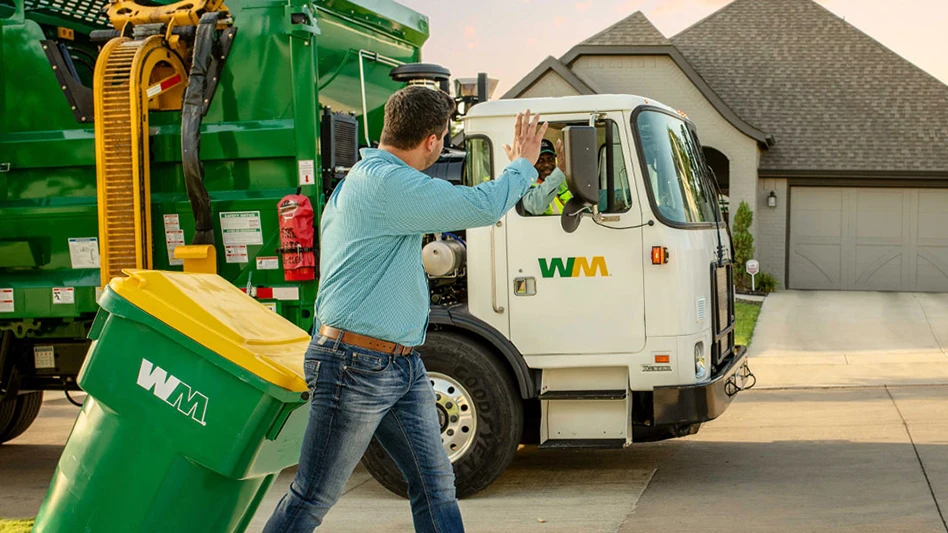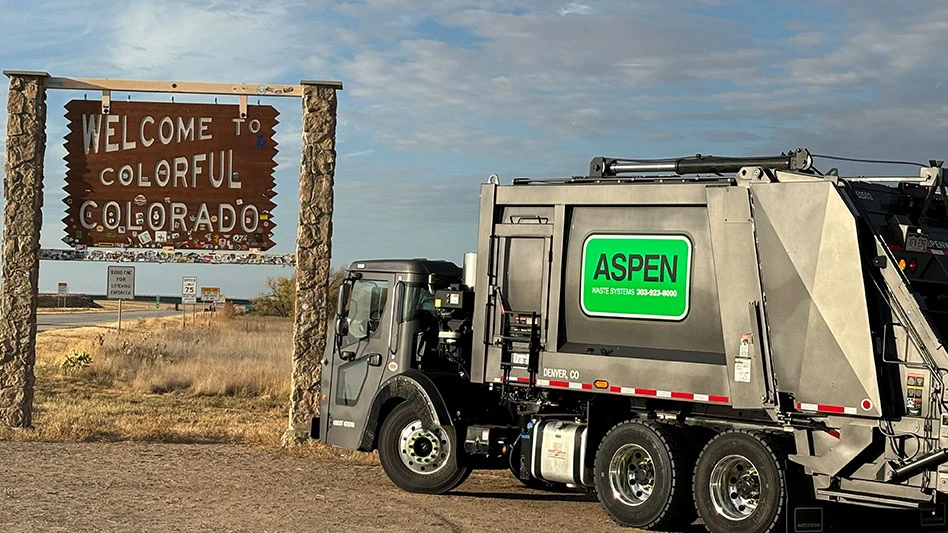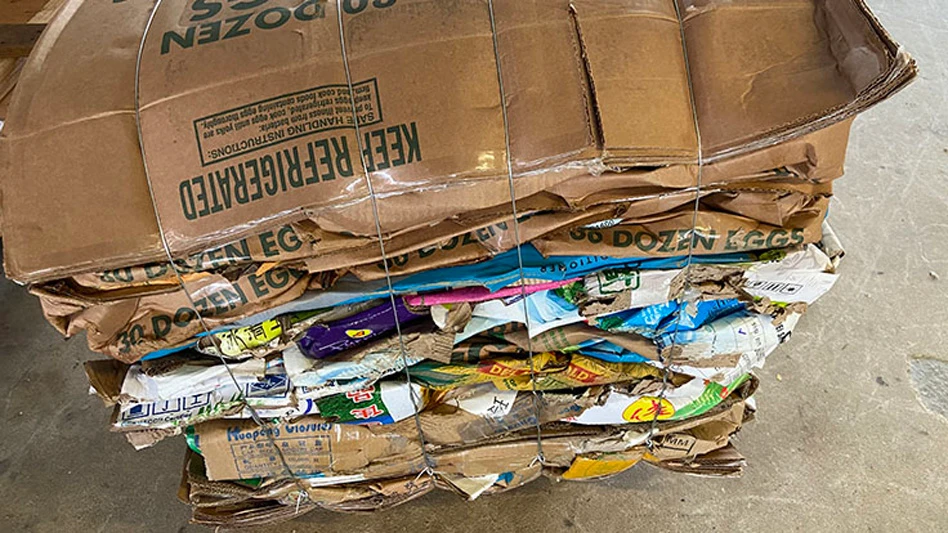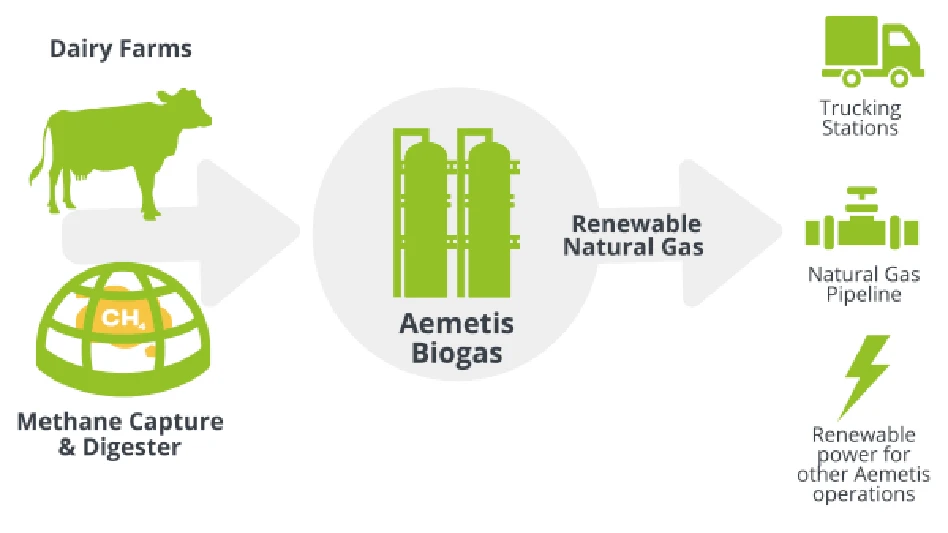
Photo courtesy of Waste Management Inc.
A coalition of some 200 truck and fleet-related companies and organizations has filed a lawsuit on behalf of renewable natural gas (RNG) users seeking changes to a U.S. Environmental Protection Agency final rule.
The Transport Project (TTP), a Washington-based organization comprised of vehicle and engine manufacturers and dealers, fleet operators, servicers and suppliers, and fuel producers objects to the EPA Phase 3 final rule on greenhouse gas (GHG) emissions standards for heavy-duty vehicles.
TTP has joined a growing list of goods movement interests, trades and energy and transportation organizations in filing the suit with the District of Columbia Circuit Court of Appeals.
The suit accompanies what a petition for reconsideration also filed in late June with the EPA. That document details TTP’s objections to the final rule.
TTP says the waste and recyclables hauling industry contains more than 17,000 natural gas refuse and recycling trucks in its fleets, and about 60 percent of new collection trucks on order are powered by natural gas.
The organization singles out Houston-based WM as one such vehicle owner, noting WM has constructed nearly 200 natural gas stations, many of which are publicly accessible, and some these dispensing facilities are fueled by 100 percent RNG sourced from the very landfills WM operates and maintains.
The interest group levels three charges against the EPA rule as it will be applied to RNG fleets: 1) it relies on incomplete data associated with the pace of compliant technology development and the related costs to fleets to comply; 2) it fails to acknowledge and incorporate provisions recognizing the significant emission reduction benefits of renewable biofuels like renewable natural gas (RNG) in reaching key emissions reduction targets; and 3) it ignores stakeholder requests and previous EPA commitments to include total life cycle assessment considerations.
“This final rule unfairly and capriciously manipulates outcomes to advance favored technologies,” says Jeffrey Clarke, TTP’s vice president of government and regulatory affairs and general counsel.
“Instead of accelerating the pace of all clean vehicle technology development and reducing GHG emissions and other harmful pollutants, this regulatory action would slow that progress by discouraging fleets from continuing the phase-in of more natural gas-fueled trucks and accelerating more RNG use.
“The Transport Project supports federal action to decarbonize heavy-duty transportation. Despite our cordial engagement and fact-based submissions, the EPA continues to ignore data supporting the advancement of RNG motor fuel as a compliant option. We therefore take this step to provide the EPA another opportunity to correct this fatal error in its rule, or alternatively, to ensure the courts require EPA to evaluate all facts and address every submission before the agency.”
TTP cites data from the California Air Resources Board (CARB) claiming the annual average carbon intensity score of the bio-compressed natural gas (CNG) mix dispensed as a motor fuel in that state last year yielded a -126.42 grams of carbon dioxide (CO2) equivalent emissions per megajoule of fuel energy figure on average.
“In fact, bio-CNG holds the lowest average carbon intensity of any clean fuel option on California’s roadways today and is the only fuel producing a negative carbon intensity fleet outcome in the California Low Carbon Fuel Standard (LCFS) Program, which includes electricity as well as ethanol, biodiesel, renewable diesel, bio-CNG, bio-LNG, alternative jet fuel and hydrogen.2,” TTP says.
TTP states as its position that RNG offers a carbon-negative impact as an affordable, scalable and available-now transportation fuel.
Latest from Waste Today
- Capital Waste acquires Tennessee Waste Haulers
- Van Dyk partners with Reckelberg Environmental Technologies
- CRI submits comments to CalRecycle on CRV handling payments
- Reworld acquires EnviroVac Waste Transport
- Waga Energy partners on RNG project at France landfill
- Hawaiian county selects landfill site
- CAA submits final draft program plan in Oregon
- Washington city adds organics collection to waste service





